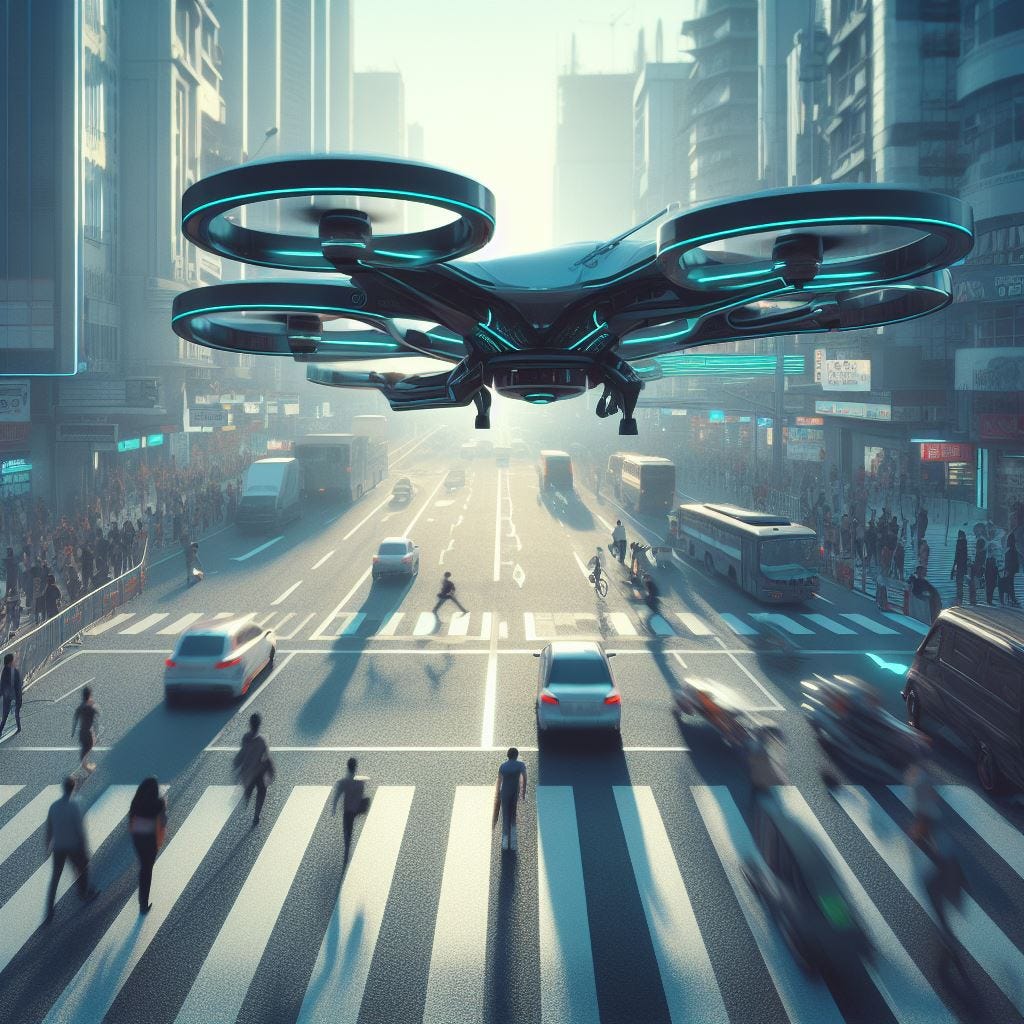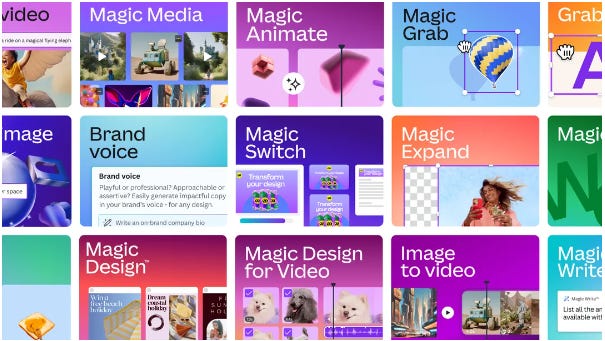The Race to AGI: How Close Are We Really?
The Race to Human-Level AI: New Predictions and Leaks Suggest Artificial General Intelligence Could Arrive Sooner Than We Ever Imagined
Artificial General Intelligence (AGI) has long been the holy grail of AI research. AGI refers to an artificial intelligence system with general cognitive abilities at the human level or beyond, able to understand and reason about the world as well as a human.
Recent advances in AI, especially in natural language processing, computer vision, and robotics, have led many experts to speculate that AGI may arrive sooner than we think. But how close are we really to developing human-level AI? In this article, we'll analyze the latest developments and predictions around AGI.
ChatGPT Sparks AGI Speculation
ChatGPT, the conversational AI system developed by Anthropic, took the world by storm when it was released in November 2022. ChatGPT shows an impressive ability to understand natural language, answer follow-up questions, and admit mistakes. Its human-like responses led many to proclaim it could pass the Turing Test, long considered the benchmark for human-level AI.
Sam Altman, CEO of Anthropic, hinted that ChatGPT represents significant progress towards AGI, stating: "It’s not an AGI, but I think it is a really big step towards AGI.” Other experts concurred, with NYU professor Gary Marcus commenting, “If ChatGPT is any indication, we may be closer to human-level AI than we previously thought."
The rapid progress displayed by ChatGPT indicates that advanced natural language processing abilities, considered a key pillar of AGI, are coming within reach. However, critics argue that despite its sophistication, ChatGPT still lacks true understanding, reasoning, and generalizability needed for AGI. The debate continues around how indicative ChatGPT really is of progress toward human-level AI.
Enterprises Race to Integrate AI
Spurred by the capabilities shown by systems like ChatGPT, major enterprises are racing to integrate AI technology into their products and services.
Google recently unveiled Bard, their conversational AI system aiming to compete with ChatGPT. Microsoft plans to incorporate AI generated content into Bing and Edge. Startups are eagerly developing AI assistants for customer service and other business applications.
As companies integrate these powerful AI systems, they accumulate huge amounts of data on how the AI interacts with and learns about the world. Some believe this real-world data will be key to developing the contextual knowledge and common sense needed for AGI. The mass deployment of AI assistants by enterprises may hasten the march to human-level intelligence.
AGI Predictions Converge on 2030s
The release of ChatGPT has shaken up previous forecasts for when AGI would arrive. While predictions ranged from 2040s to 2080s just a couple years ago, recent estimates have converged around the 2030s.
In a survey of 352 AI experts conducted after ChatGPT’s release, median estimate for AGI was 2038. Though criticized by some as overoptimistic, other experts stand by timeline predictions close to that date. Google's Director of AI Jeff Dean predicts AGI could emerge by 2029. MIT professor Max Tegmark believes there's a 50% chance of AGI by 2036.
OpenAI CEO Sam Altman gives a timeframe of 2030-2035 for human-level AI. Anthropic has an internal target of 2030 for safe AGI. Though these estimates may still prove aggressive, the consistency of expert opinions predicting AGI by around 2030-2040 is telling. The consensus appears to be coalescing around AGI arriving within one or two decades.
Is AGI Closer Than We Think?
Some believe we could be on the very cusp of human-level AI, with key breakthroughs happening outside of the public eye. Rumors and leaks from major AI labs hint at rapid progress beyond what has been publicly revealed so far.
Jimmy Apples, an apparent OpenAI insider leaking details on their projects, recently claimed “AGI has been achieved internally” at the lab. A week later, Sam Altman seemed to confirm this in a post, before retracting it as a joke. Many still speculate that OpenAI's capabilities in private may exceed what the public has seen up till now.
There are also indications that models more advanced than ChatGPT are already in development. Microsoft is reportedly working on an "Ultra-GTC" model over 5 times larger than GPT-3. Google's LaMDA architecture is rumored to be capable of sophisticated reasoning. There's speculation that major breakthroughs in unsupervised learning or other techniques could unlock AGI unexpectedly.
The secrecy around leading corporate and government AI labs means we don't know just how advanced ongoing AGI research has become. There are indications it could be further along than publicly revealed. We may wake up one day soon to an announcement that AGI has already been achieved behind closed doors.
The AGI Landscape Still Has Major Unknowns
However, it’s important not to get carried away. While recent progress is encouraging, there remains huge technical challenges standing between today's AI and human-level AGI. We do not yet have a clear roadmap to bridge that gap.
Current AI still lacks the general world knowledge, common sense reasoning, memory, and learning abilities that allow humans to adapt to novel environments and tasks. Translating narrow AI into generally intelligent systems remains an open research problem. Our limited understanding of our own intelligence also hampers efforts to recreate it artificially.
There are also concerns around fundamental limitations of current techniques like deep learning. Some believe new approaches may be needed, potentially involving fundamentally different compute architectures. Quantum computing is sometimes theorized as an avenue, though still distant from practical application.
While the 2030s predictions give a sense of optimism around quick progress, the truth is the remaining challenges are enormous. There remains a high chance that current methods falter and timelines stretch significantly longer. Making confident forecasts is extremely difficult given the many unknowns still surrounding AGI development.
The AGI Revolution Will Transform Everything
Regardless of when it arrives, the emergence of AGI has the potential to transform nearly every sector and industry. As envisioned by leaders like Sam Altman, AGI represents a uniquely powerful technology that can catapult civilization to new heights.
But such a disruptive transition also comes with enormous risks and challenges. Society will need to grapple with complex ethics questions, potential dangers from misuse, and mass displacement of human labor. Without sufficient planning and foresight, an uncontrolled AGI revolution could bring chaos and catastrophe.
But with prudent management, AGI could launch humanity into a new era of scientific discovery, prosperity, and fulfillment for all people. The race is on to steer towards that positive outcome.
The Path Ahead
AGI represents the most transformative technology humans have ever developed. Current indicators suggest its arrival could be imminent, within the next 10-20 years. But the remaining roadblocks are formidable, and timelines remain deeply uncertain.
What does seem clear is that the age of artificial general intelligence is drawing inexorably closer. It will require our best efforts in science and ethics to navigate the turbulent transition ahead. But if we chart the course rightly, an AI-powered civilization of wonder and flourishing could await. The path to beneficial AGI will define the human story in the 21st century and beyond.








